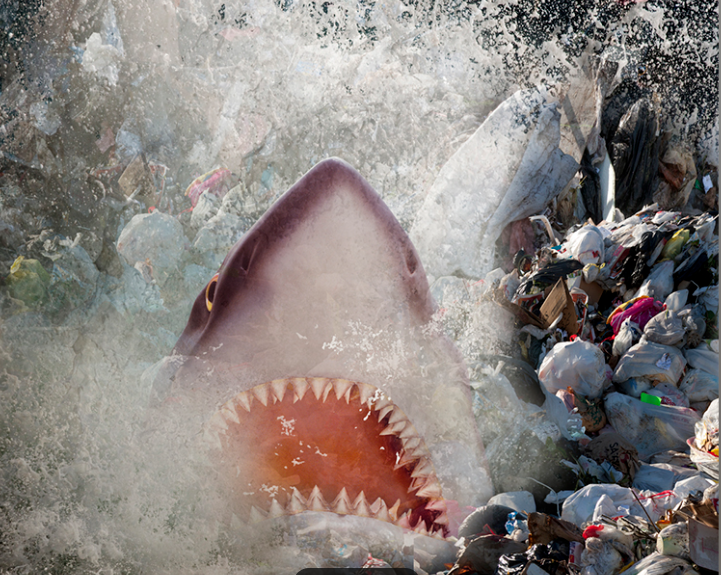
Environmental Impacts on Sharks and the Marine Ecosystem
Share
Sharks are a vital component of marine ecosystems, playing an essential role in regulating the food chain and maintaining the health of oceans. However, the proliferation of plastics in marine environments is causing significant harm to shark populations. Plastics pose a significant threat to the survival of sharks and the health of our oceans.
Plastics are a ubiquitous material in our modern world, and their use has skyrocketed in recent decades. However, the durability and persistence of plastic have led to significant environmental problems, especially in marine environments. Plastic waste, particularly single-use plastics, finds its way into oceans, where it harms marine life in numerous ways. For sharks, the primary threat from plastics is entanglement and ingestion.
Entanglement in plastic waste is a major problem for sharks. Sharks can easily become entangled in fishing gear, such as nets and lines, and other types of debris, such as plastic bags and packaging. Entanglement can lead to injury, disfigurement, and death, as sharks struggle to free themselves from the entangling material. In some cases, entanglement can also lead to drowning, as the weight of the plastic drags the shark down to the depths of the ocean.
Ingestion of plastics is also a significant problem for sharks. Sharks are apex predators, and they feed on a variety of prey, including fish, squid, and crustaceans. However, as plastics break down into smaller particles, they can become mistaken for prey. Sharks that ingest plastics can suffer from internal injuries, blockages, and even starvation, as the plastic displaces the natural food in their stomachs. Ingested plastics can also release toxic chemicals into the shark's body, which can harm their health and even lead to death.
The impact of plastics on shark populations is not only a concern for the survival of the species, but also for the health of marine ecosystems. Sharks play a vital role in regulating the food chain and maintaining the balance of marine ecosystems. A decline in shark populations due to plastic pollution could have significant ripple effects throughout the food web, leading to an unbalanced and potentially unstable marine environment.
To mitigate the impact of plastics on sharks and marine ecosystems, it is crucial to reduce plastic waste at its source. This includes reducing the use of single-use plastics, such as straws, bags, and packaging, and implementing better waste management systems to prevent plastic waste from entering our oceans. Additionally, sustainable fishing practices that reduce the amount of fishing gear and other debris in the ocean can also help mitigate the impact of plastics on sharks.
The environmental impacts of plastics on sharks are a significant concern for the health of our oceans and the survival of this important species. Plastic pollution in the ocean poses a threat to the health and well-being of sharks, and the impact of this pollution could have severe consequences for marine ecosystems. To protect sharks and mitigate the impact of plastics on their populations, it is essential to reduce plastic waste at its source and implement sustainable practices in our use of plastics.
Please visit these organizations to see how they are working to clean our oceans, and how you can help:
Homepage - Oceans' Harmony (oceansharmony.org) Oceans’ Harmony is a non-profit organization, dedicated to maintaining, improving and conserving the oceans and seas of the world.
www.4ocean.com 4ocean is an ocean cleanup company dedicated to ending the ocean plastic crisis. As a Public Benefit Corporation and Certified B Corp, we harness the power of business to fund a global cleanup operation that’s responsible for recovering millions of pounds of plastic and trash from the world’s oceans, rivers, and coastlines.
The Ocean Cleanup The Ocean Cleanup is a non-profit organization developing and scaling technologies to rid the oceans of plastic. To achieve this objective, we have to work on a combination of closing the sources of plastic pollution and cleaning up what has already accumulated in the ocean and doesn’t go away by itself. This goal means we plan to put ourselves out of business – once we have completed this project, our work is done.

